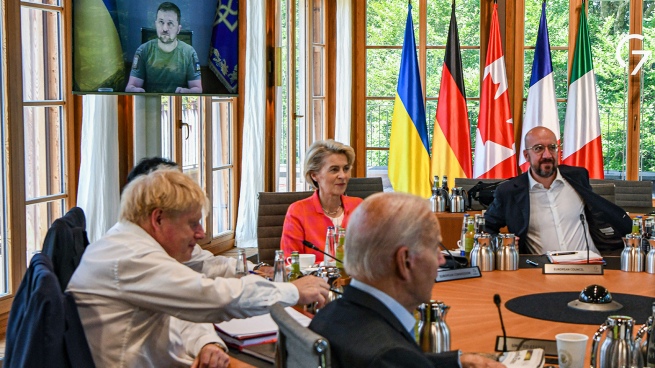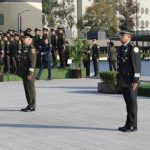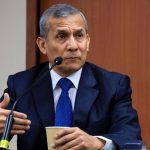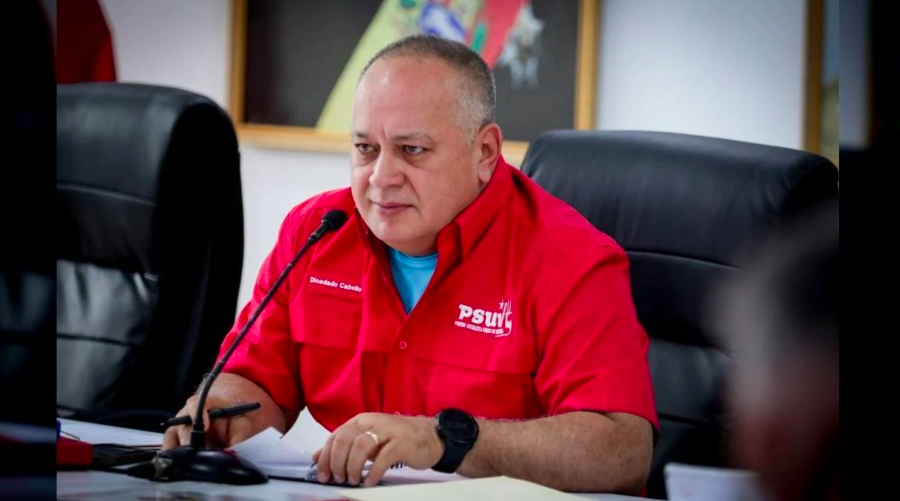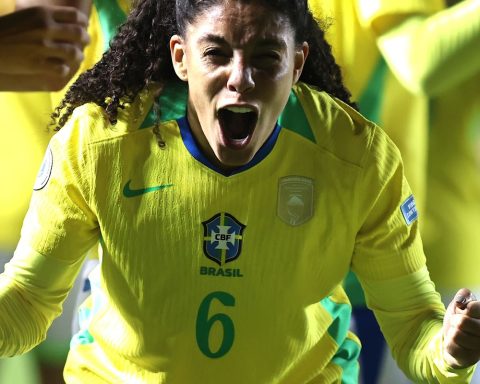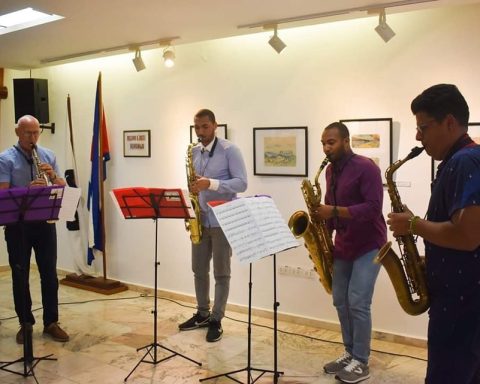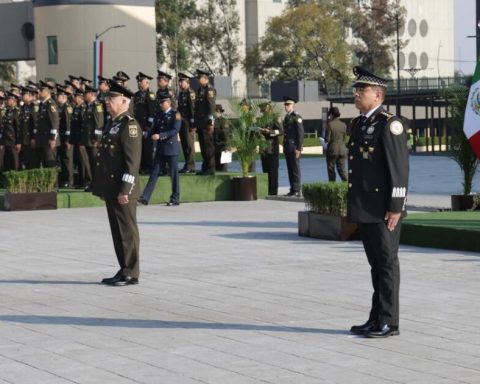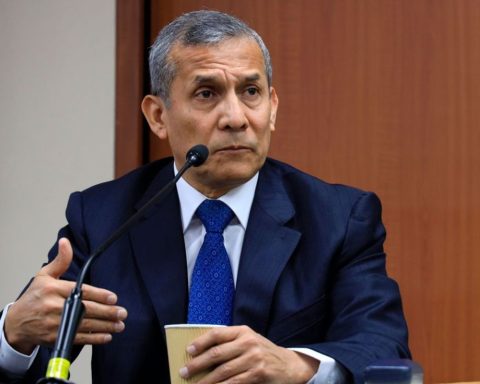The leaders of the Group of Seven (G7) most industrialized countries pledged this Monday to support “as long as necessary” in humanitarian, diplomatic and military terms to Ukraine, and promised more sanctions against Russia, during a summit in Germany at the that the Ukrainian president, Volodimir Zelensky, called for more pressure on the Kremlin.
In a telematic intervention before the US president, Joe Biden, and the other leaders of the seven largest economies, Zelenski urged to “do everything” possible to end the war before the end of the year and avoid “the harshness of the Ukrainian winter”which makes it more difficult to fight.
The president, who will also participate in a NATO summit that begins this Tuesday in Madrid, insisted before the leaders of the United States, Germany, the United Kingdom, France, Italy, Japan and Canada, that it was necessary to “intensify sanctions” against Russia. .
“This is not the time for negotiations” with Moscow, Zelensky said, according to a French diplomat on condition of anonymity, in line with the French Presidency’s communication policy, the AFP news agency reported.
White House sources, meanwhile, specified that the G7 will commit to further tightening sanctions against Russia’s economy and developing a “mechanism” to “cap Russian oil prices”the latter also at the request of Zelensky.

In that line, France has proposed that countries increase their crude production “on an exceptional basis” to offset rising prices.
The industrialized powers are going to “continue to restrict Russia’s access to crucial industrial resources”, in particular in the defense sector, according to these sources.who explained that the strategy also seeks to “aggressively” hit large Russian public companies.
The G7, which is holding its summit at Elmau castle in the southern German region of Bavaria, also wants to “coordinate to use customs duties on Russian goods to help Ukraine,” starting with higher tariffs, the sources added. according to AFP.
“We will continue to increase pressure on Putin. This war must end,” German Prime Minister Olaf Scholz tweeted.
In a joint statement, the G7 leaders, who started their meeting on Sunday and will conclude on Tuesday, also expressed “deep concern” following the announcement that Russia may transfer nuclear-capable missiles to Belarus.
The United States, which is leading support for Ukraine, plans to supply that country with a sophisticated surface-to-air missile system, indicated a source who described that initiative as a “priority” for President Biden.
During the summit, President Alberto Fernández called for the need for “dialogue” to reach a “cessation of hostilities” between the parties, while advocating “for the construction of a new international financial architecture that includes the peripheries of the world” and celebrated the debates on “taxes that correct the concentration of income.”

Fernández’s first speech centered on the war and a necessary remodeling of the financial system so that “efforts are balanced and the benefits are distributed with equity criteria.”
These G7 talks come a day after Ukraine denounced the first Russian attack on its capital in three weeks.with missiles hitting two residential buildings and leaving one person dead, while fierce fighting continues in the east in this bloody conflict now in its fifth month.
Russia said that what it attacked was a missile factory near the buildings and what hit them was a Ukrainian anti-aircraft missile.
In the city of Kremenchuk, in central Ukraine, meanwhile, a missile hit a busy shopping center on Monday, causing at least 13 deaths and more than 40 injuries.
Zelensky said in a message on the Telegram network that the number of victims is “unimaginable”, citing reports that there were more than 1,000 civilians inside at the time of the attack.
The G7 also made a place to condemn this attack, which it described as a “war crime” and “abominable” and joined the locals “in sorrow for the innocent victims.”
“Indiscriminate attacks against innocent civilians constitute a war crime,” declared the leaders, who warned that Vladimir Putin will have to “be held accountable” for the act.

The G7 summit will be followed on Tuesday by a NATO meeting in Madrid, whose agenda will also focus on the situation in Ukraine.
This Monday, the Atlantic Alliance announced that it will increase its troops in a high readiness situation to “more than 300,000 combatants” (compared to the current 40,000) and that it will send more heavy weapons to its eastern flank.
Its general secretary, Jens Stoltenberg, stated that these measures “constitute the largest review of our collective defense and presence since the Cold War.”
As the four-month-old war drags on, its impact on other countries is intensifying, with rising food and energy prices driving global inflation and fueling fears of recession.
“We urgently call on Russia to cease, without any conditions, its attacks on agriculture and transport infrastructure, and to allow free transit of agricultural shipments from Ukrainian ports on the Black Sea,” the G7 leaders said in the joint statement.
With millions of tons of grain blocked in Ukrainian ports, concern is growing that African nations highly dependent on Ukraine’s exports could face famine.
The leaders of Argentina, Indonesia, India, Senegal and South Africa were invited to participate this Monday in the G7 summit.
